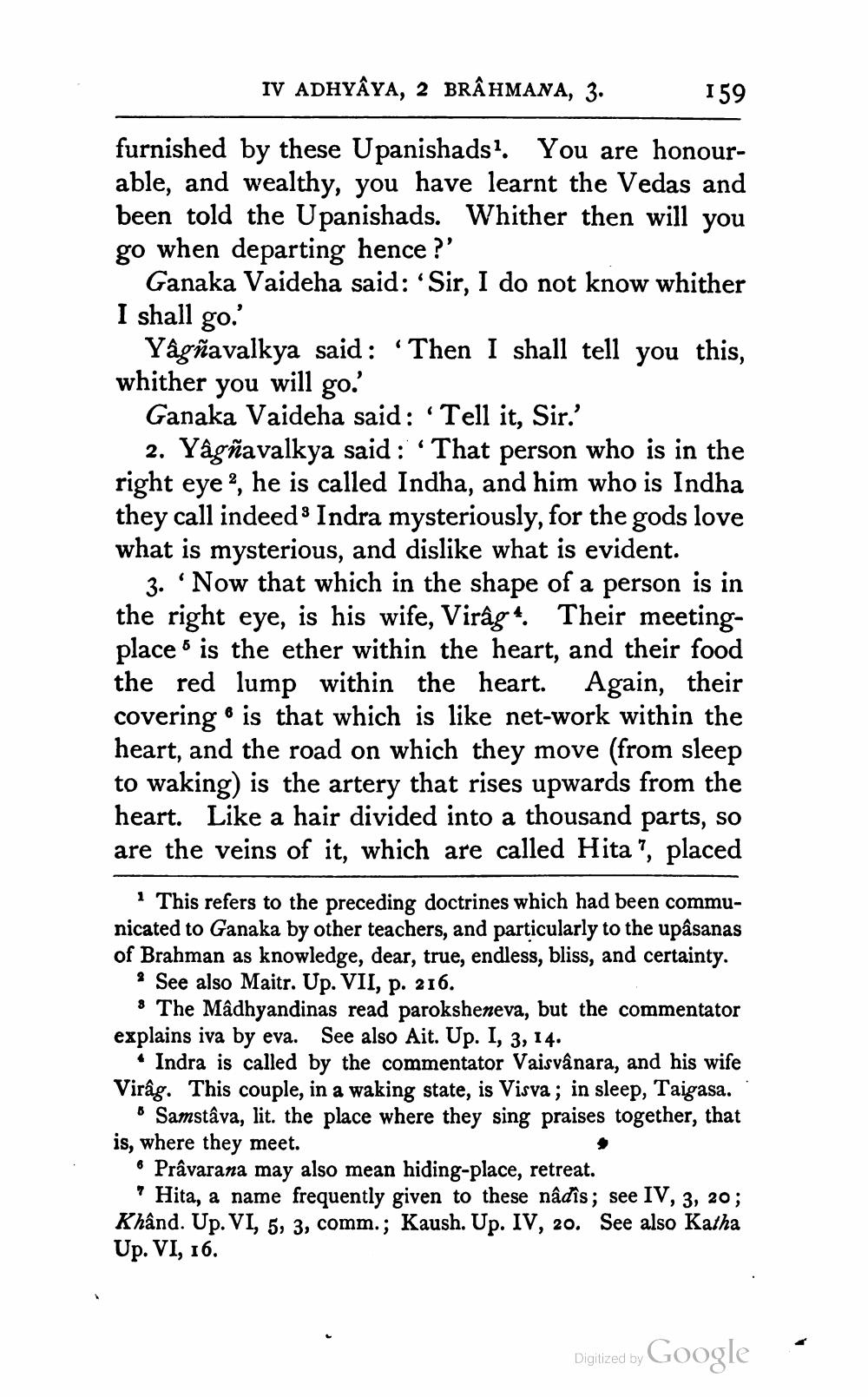________________
IV ADHYÂYA, 2 BRÂHMANA, 3.
159
furnished by these Upanishads?. You are honourable, and wealthy, you have learnt the Vedas and been told the Upanishads. Whither then will you go when departing hence ?'
Ganaka Vaideha said: 'Sir, I do not know whither I shall go.'
Yâgñavalkya said: “Then I shall tell you this, whither you will go.
Ganaka Vaideha said: “Tell it, Sir.'
2. Yagñavalkya said: "That person who is in the right eye ?, he is called Indha, and him who is Indha they call indeed Indra mysteriously, for the gods love what is mysterious, and dislike what is evident.
3. Now that which in the shape of a person is in the right eye, is his wife, Virág 4 Their meetingplace is the ether within the heart, and their food the red lump within the heart. Again, their covering is that which is like net-work within the heart, and the road on which they move (from sleep to waking) is the artery that rises upwards from the heart. Like a hair divided into a thousand parts, so are the veins of it, which are called Hita", placed
1 This refers to the preceding doctrines which had been communicated to Ganaka by other teachers, and particularly to the upâsanas of Brahman as knowledge, dear, true, endless, bliss, and certainty.
See also Maitr. Up. VII, p. 216. * The Mâdhyandinas read paroksheneva, but the commentator explains iva by eva. See also Ait. Up. I, 3, 14.
• Indra is called by the commentator Vaisvânara, and his wife Virâg. This couple, in a waking state, is Visva ; in sleep, Taigasa.
Samstava, lit. the place where they sing praises together, that is, where they meet. 6 Prâvarana may also mean hiding-place, retreat.
Hita, a name frequently given to these nâdîs; see IV, 3, 20; Khând. Up. VI, 5, 3, comm.; Kaush. Up. IV, 20. See also Katha Up. VI, 16.
Digitized by Google




